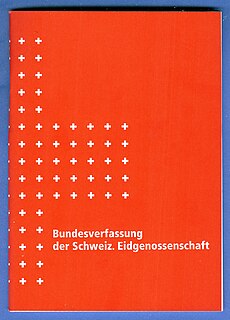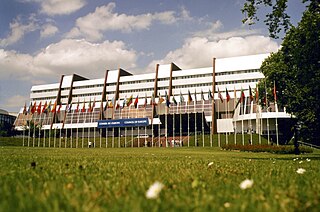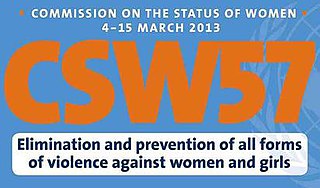External links
- The European charter for equality of women and men in local life
- Observatory of the European charter for equality of women and men in local life
| This Europe-related article is a stub. You can help Wikipedia by expanding it. |
The Council of European Municipalities and Regions launched in May 2006 a European charter for equality of women and men in local life. This charter is addressed to the local and regional governments of Europe, who are invited to sign it, to make a formal public commitment to the principle of equality of women and men, and to implement, within their territory, the commitments set out within the Charter.
CEMR has always worked to eliminate all types of discriminations, including on men/women equality issues.
Throughout 2005, CEMR, with the financial support of the European Commission, led a project on The town for equality. That project aimed mainly at collecting best practice cases of gender equality in European local governments as well as at setting up a methodology to help local representatives achieve true gender equality in their municipalities.
At the end of the project, CEMR, still with the support of the European Commission, started a new project to draft a European charter for equality of women and men in local life. Its aim was to encourage local politicians to sign it, thus committing themselves publicly to implement the measures in the charter in their municipalities.
| This Europe-related article is a stub. You can help Wikipedia by expanding it. |
Affirmative action, which incorporates some of the features of both of the two distinct British terms "positive discrimination" and "positive action", describes policies that support members of a disadvantaged group that has previously suffered discrimination in such areas as education, employment, or housing. Historically and internationally, support for affirmative action has sought to achieve goals such as bridging inequalities in employment and pay, increasing access to education, promoting diversity, and redressing apparent past wrongs, harms, or hindrances.
Equal pay for equal work is the concept of labour rights that individuals in the same workplace be given equal pay. It is most commonly used in the context of sexual discrimination, in relation to the gender pay gap. Equal pay relates to the full range of payments and benefits, including basic pay, non-salary payments, bonuses and allowances. Some countries have moved faster than others in addressing the problem. Since President John F. Kennedy signed the Equal Pay Act of 1963, it has been illegal in the United States to pay men and women working in the same place different salaries for similar work.

The Convention on the Elimination of all Forms of Discrimination Against Women (CEDAW) is an international treaty adopted in 1979 by the United Nations General Assembly. Described as an international bill of rights for women, it was instituted on 3 September 1981 and has been ratified by 189 states. Over fifty countries that have ratified the Convention have done so subject to certain declarations, reservations, and objections, including 38 countries who rejected the enforcement article 29, which addresses means of settlement for disputes concerning the interpretation or application of the Convention. Australia's declaration noted the limitations on central government power resulting from its federal constitutional system. The United States and Palau have signed, but not ratified the treaty. The Holy See, Iran, Somalia, Sudan, and Tonga are not signatories to CEDAW.
The Fourth World Conference on Women: Action for Equality, Development and Peace was the name given for a conference convened by the United Nations during 4–15 September 1995 in Beijing, China.

Human rights are comprehensively guaranteed in Switzerland, one of Europe's oldest democracies. Together with other European states, Switzerland is often at or near the head in international civil liberties and political rights rankings. Switzerland places human rights at the core of the nation's value system, as represented in the Federal Constitution and political model. Promotion of peace, mutual respect, equality and non-discrimination are central to the country's democratic election.
Gender mainstreaming is the public policy concept of assessing the different implications for people of different genders of any planned policy action, including legislation and programmes, in all areas and levels. Mainstreaming essentially offers a pluralistic approach that values the diversity among people of different genders.

The Council of European Municipalities and Regions (CEMR) is the largest organisation of local and regional governments in Europe. Its members are 60 national associations of towns, municipalities and regions from 41 countries that are part of the Council of Europe. Together these associations represent about 130,000 local and regional authorities.

The Congress of Local and Regional Authorities is the pan-European political assembly representing local and regional authorities from the forty-seven member states of the Council of Europe. Its role is to promote local and regional democracy, improve local and regional governance and strengthen authorities' self-government, according to the principles laid down in the European Charter of Local Self-Government. It is made up of two chambers, the Chamber of Local Authorities and the Chamber of Regions and holds its plenary sessions twice a year at the Palace of Europe in Strasbourg, where its permanent Secretariat is located.
Afghan Ministry of Women's Affairs (MOWA) is a ministry in the Afghan government which was established in late 2001 by Afghan Interim Administration.

Since 1979, the United Nations International Research and Training Institute for the Advancement of Women has been the leading United Nations body of the research, knowledge management and capacity development of gender equality and women's empowerment. The Institute's participatory and innovative approaches to research have produced gender disaggregated data and research results that have served to better inform the design of training and capacity-building programmes and to strengthen stakeholder capacity to address and effectively integrate gender perspectives in all policies, programmes and projects. UN-INSTRAW works in partnership with governments, the United Nations System, civil society and academia.

The Equality Act 2010 is an Act of Parliament of the United Kingdom with the primary purpose of consolidating, updating and supplementing the numerous prior Acts and Regulations, that formed the basis of anti-discrimination law in Great Britain. These consisted, primarily, the Equal Pay Act 1970, the Sex Discrimination Act 1975, the Race Relations Act 1976, the Disability Discrimination Act 1995 and three major statutory instruments protecting discrimination in employment on grounds of religion or belief, sexual orientation and age.
The Beijing Declaration was a resolution adopted by the UN at the end of the Fourth World Conference on Women on 15 September 1995. The resolution adopted to promulgate a set of principles concerning the equality of men and women.
The Covenant of Mayors is a European co-operation movement involving local and regional authorities. Signatories of the Covenant of Mayors voluntarily commit to increasing energy efficiency and the use of renewable energy sources on their territories. By their commitment, they support the European Union 20% CO
2 reduction objective to be reached by 2020.

The Equal Opportunities Commission (EOC) is a statutory body responsible for implementing the Sex, Race, Disability, and Family Status Discrimination Ordinances in Hong Kong. The Commission was established in 1996 as an independent body to investigate complaints, facilitate mediation and take legal action against offenders.

The Expert Group Meeting (EGM): prevention of violence against women and girls was convened as part of the United Nations Commission on the Status of Women's multi-year programme of work for 2010-2014. The "Elimination and prevention of all forms of violence against women and girls" forms a priority theme for its fifty-seventh session in 2013 (CSW57).
Declaration of Mexico on the Equality of Women and their Contribution to Development and Peace 66/34 was a resolution adopted by the UN at the end of the International Women's Year World Conference on Women on 2 July 1975. The resolution adopted to promulgate a set of principles concerning the equality of men and women.
Gender budgeting means preparing budgets or analyzing them from a gender perspective. Also referred to as gender-sensitive budgeting, this practice does not entail dividing budgets for women. It aims at dealing with budgetary gender inequality issues, including gender hierarchies and the discrepancies between women's and men's salaries. At its core, gender budgeting is a feminist policy with a primary goal of re-orienting the allocation of public resources, advocating for an advanced decision-making role for women in important issues, and securing equity in the distribution of resources between men and women. Gender budgeting allows governments to promote equality through fiscal policies by taking analyses of a budget's differing impacts on the sexes as well as setting goals or targets for equality and allocating funds to support those goals. This practice does not always target intentional discrimination, but rather forces an awareness of the effects of financial schemes on all genders.

Gender equality in Azerbaijan is guaranteed by the country's constitution and legislation, and an initiative is in place to prevent domestic violence. Azerbaijan ratified a United Nations convention in 1995, and a Gender Information Center opened in 2002. A committee on women's issues was established in 1998.
Foreign aid for gender equality in Jordan includes programs funded by governments or non-governmental organizations (NGOs) that aim to empower women, close gender based gaps in opportunity and experience, and promote equal access to education, economic empowerment, and political representation in the Hashemite Kingdom of Jordan.
Substantive equality is a fundamental aspect of human rights law that is concerned with equitable outcomes and equal opportunities for disadvantaged and marginalized people and groups in society. Scholars define substantive equality as an output or outcome of the policies, procedures, and practices used by nation states and private actors in addressing and preventing systemic discrimination.